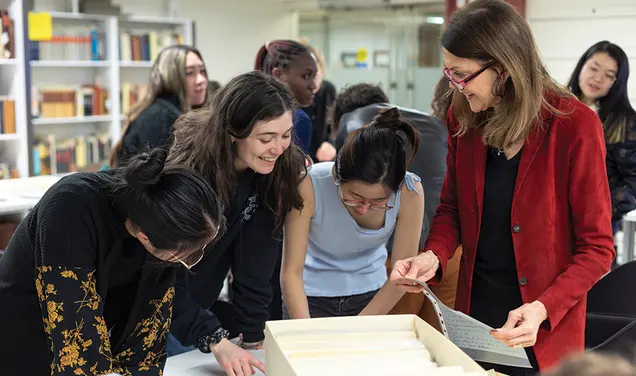
When writing his new book about the difficult relationship between the United States and Pakistan, Daniel Markey *00 found an eerily apt metaphor in the famous Jean-Paul Sartre play No Exit. The play features three sinners sentenced to hell by being stuck in a small room with each other. The three are perfectly calibrated to torment each other — so much so that, by the time they have the opportunity to escape, they have grown so dependent on each other that they stay right where they are.
In No Exit from Pakistan: America’s Tortured Relationship with Islamabad (Cambridge University Press), Markey concludes that the United States and Pakistan, like Sartre’s characters, are frenemies who can’t help but torment each other indefinitely.
Markey writes that the United States often has treated Pakistan as a pawn in its larger goals, such as containing communism or terrorism, rather than seeing “inherent value in trade, cultural affinities, or a shared worldview.” Pakistan, for its part, has pursued its rivalry with neighboring India — through its support for militants and its successful effort to build a nuclear bomb — in a way that has risked international stability.
However frustrating these divisions have been, though, full disengagement between Pakistan and the United States isn’t an option. “Unlike Iran, Pakistan is already nuclear. Unlike North Korea, it’s enormous. And it’s a country that’s globally interconnected with terrorism links,” says Markey, a senior fellow at the Council on Foreign Relations in Washington, D.C.
The U.S. raid to kill Osama bin Laden in 2011 crystallized these tensions. Many in the United States couldn’t imagine how the world’s most-wanted terrorist could have found refuge in Pakistan without the knowledge or cooperation of some Pakistanis. Meanwhile, the United States mishandled the diplomatic side, Markey says, failing to draw up a plan for smoothing foreseeable tensions in the hours and days after the raid.
To Markey, it’s impossible to separate Pakistan’s challenges in international relations from its internal difficulties. There’s a huge population of young, insufficiently educated Pakistanis facing weak job prospects. At times, violence seems to be preventing the type of economic progress that could ameliorate these problems, he says.
The United States could help economically — American-funded projects from the 1950s and 1960s such as dams and universities did genuine good, Markey says — but the United States’ Sisyphean experience in Afghanistan since 2001 has left American policymakers and the public wary of nation building. Instead, Markey suggests more limited strategies.
The United States should “prepare for the worst,” he says, by putting in place structures that deter the use of nuclear weapons, while finding “common cause” with Pakistan on such issues as promoting trade and regional integration and avoiding past mistakes such as indulging Pakistani leaders’ authoritarian tendencies.
“We shouldn’t write off our ability to do good — just our ability to change an enormous country,” he says.
The Way of the Knife: The CIA, a Secret Army, and a War at the Ends of the Earth, by New York Times writer Mark Mazzetti. “It’s based on incredible reporting that was very useful when it came out in the paper.”











No responses yet